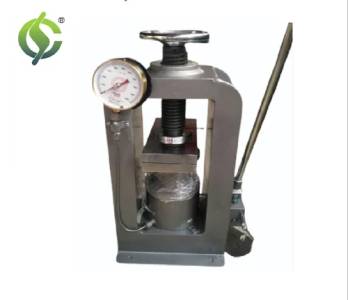Description
Here's a detailed product description for a Centrifugal Blower Test Rig in Markdown format:
Centrifugal Blower Test Rig: Comprehensive Performance Analysis Platform
Overview
The Centrifugal Blower Test Rig is an advanced, self-contained educational and research apparatus designed to provide a comprehensive understanding of centrifugal blower performance characteristics. This meticulously engineered system allows students, researchers, and engineers to conduct a wide range of experiments, verifying theoretical principles of fluid dynamics and turbomachinery through hands-on practical application.
Ideal for fluid mechanics, thermal engineering, and HVAC laboratories, this test rig delivers accurate, repeatable results, making complex concepts accessible and engaging. It's built for durability, safety, and ease of use, ensuring a reliable and enriching learning experience.
Key Features
- Industrial-Grade Centrifugal Blower: Equipped with a high-quality, dynamically balanced centrifugal blower (typically forward, backward, or radial curved blades available upon request) for realistic performance study.
- Variable Speed Drive (VSD): An integrated Variable Frequency Drive (VFD) allows for precise control over the blower's rotational speed, enabling the study of performance variations under different operating conditions and the verification of fan laws.
- Robust Ducting System: Smooth, low-loss inlet and outlet ducting designed to ensure laminar flow conditions and accurate measurement of flow parameters.
- Comprehensive Instrumentation:
- Flow Measurement: Orifice plate with a differential pressure manometer (water/mercury type or digital) for accurate measurement of air flow rate.
- Pressure Measurement: Multi-tube manometers (inclined and vertical) for precise static and total pressure measurements at various points along the duct. Digital pressure sensors can also be integrated.
- Speed Measurement: Non-contact digital tachometer for precise measurement of blower RPM.
- Power Measurement: Digital wattmeter/power analyzer to measure the input electrical power to the motor.
- Temperature Measurement: RTD (Resistance Temperature Detector) or thermocouple with digital indicator for air temperature measurement.
- Integrated Control Panel: User-friendly panel housing all electrical controls, VFD, digital displays for speed, power, and temperature, along with necessary safety features (MCB, ELCB, emergency stop).
- Sturdy & Ergonomic Frame: Constructed from powder-coated mild steel or stainless steel, providing a stable, corrosion-resistant, and aesthetically pleasing platform. Designed for easy access to all components for observation and maintenance.
- Safety Features: Equipped with overload protection for the motor, emergency stop button, and proper electrical insulation to ensure safe operation in educational environments.
- Data Acquisition System (Optional Add-on): Advanced versions can include a computer interface with dedicated software for real-time data logging, analysis, and graphical representation of performance curves, enhancing research capabilities.
Learning Objectives & Experiments
With the Centrifugal Blower Test Rig, users can perform a variety of experiments and achieve key learning outcomes:
- Determine Performance Characteristics: Plot characteristic curves such as:
- Total Pressure vs. Flow Rate ($P_{total}$ vs. Q)
- Static Pressure vs. Flow Rate ($P_{static}$ vs. Q)
- Blower Efficiency vs. Flow Rate ($\eta$ vs. Q)
- Input Power vs. Flow Rate ($P_{in}$ vs. Q)
- Study the Effect of Speed: Analyze how changing the blower's rotational speed impacts its pressure, flow rate, and efficiency.
- Verify Fan Laws: Experimentally confirm the fundamental fan laws relating speed, flow, pressure, and power.
- Calculate Efficiencies: Determine the volumetric, mechanical, static, and overall efficiencies of the blower.
- Understand System Characteristics: Observe the interaction between the blower and the ducting system.
- Identify Optimum Operating Point: Determine the point of maximum efficiency for the blower.
- Pressure Loss Analysis: Study pressure losses across the ducting system and the orifice meter.
- Practical Application of Measurement Techniques: Gain hands-on experience with flow, pressure, speed, and power measurement instruments.
Technical Specifications (Typical, customizable upon request)
- Blower Type: Single-stage Centrifugal, Radial/Backward/Forward Curved Blades
- Motor: 1 HP to 3 HP, 3 Phase AC, TEFC (Totally Enclosed Fan Cooled)
- Speed Control: Variable Frequency Drive (VFD), 0-3000 RPM (typical)
- Duct Diameter: 100 mm to 200 mm (depending on blower capacity)
- Orifice Meter: Sharp-edged orifice plate, accurately sized for the duct.
- Manometers:
- Inclined Manometer: 0-250 mm H2O
- Vertical Manometer: 0-500 mm H2O (water/mercury filled)
- Digital Pressure Gauge (Optional): Range 0-1 bar
- Tachometer: Digital, non-contact, range 0-99999 RPM
- Wattmeter: Digital, 3-Phase, Power Factor, Voltage, Current, Frequency display
- Temperature Sensor: RTD (Pt-100) with Digital Indicator, Range 0-100°C
- Material of Construction: MS Powder Coated / SS304
- Power Supply: 415V AC, 3 Phase, 50 Hz (customizable for other regions)
- Dimensions: Approx. 1500(L) x 800(W) x 1500(H) mm (Varies with capacity)
Benefits
- Enhanced Learning: Provides invaluable practical experience that complements theoretical coursework.
- Accurate Data: Precision instrumentation ensures reliable and repeatable experimental results.
- Durable Construction: Built with high-quality components for long-term use in demanding educational environments.
- User-Friendly: Intuitive design and clear instrumentation make it easy for students and instructors to operate.
- Versatile: Suitable for undergraduate, postgraduate, and research-level studies.
- Safety First: Incorporates multiple safety features to protect users and equipment.
- Comprehensive Manual: Supplied with a detailed operating manual, experimental procedures, and theoretical background.
Applications
- Fluid Mechanics Laboratories
- Thermal Engineering Laboratories
- HVAC (Heating, Ventilation, and Air Conditioning) Training Programs
- Mechanical Engineering Departments
- Research & Development Centers
- Vocational Training Institutes
Get a Quote
Elevate your engineering education and research capabilities with our state-of-the-art Centrifugal Blower Test Rig.
Contact us today to discuss your specific requirements, request a detailed brochure, or receive a customized quotation. Our experts are ready to assist you in selecting the perfect solution for your institution.
